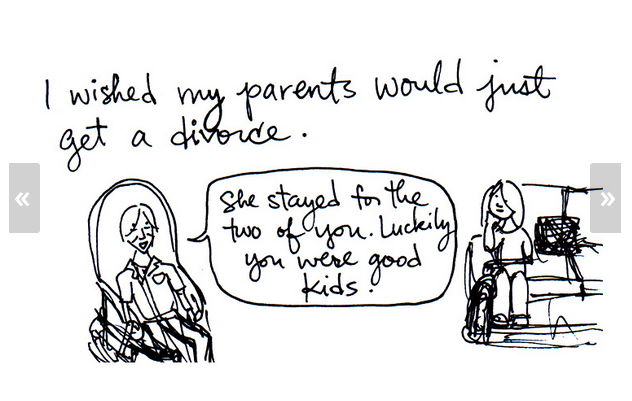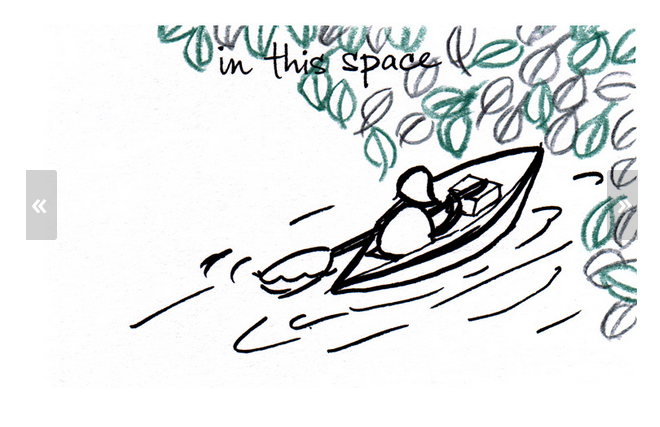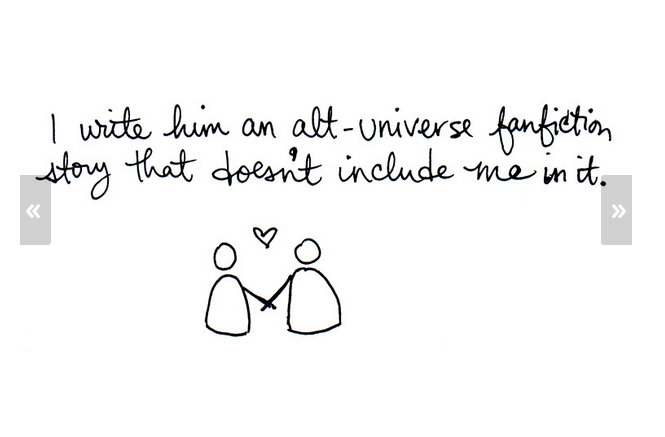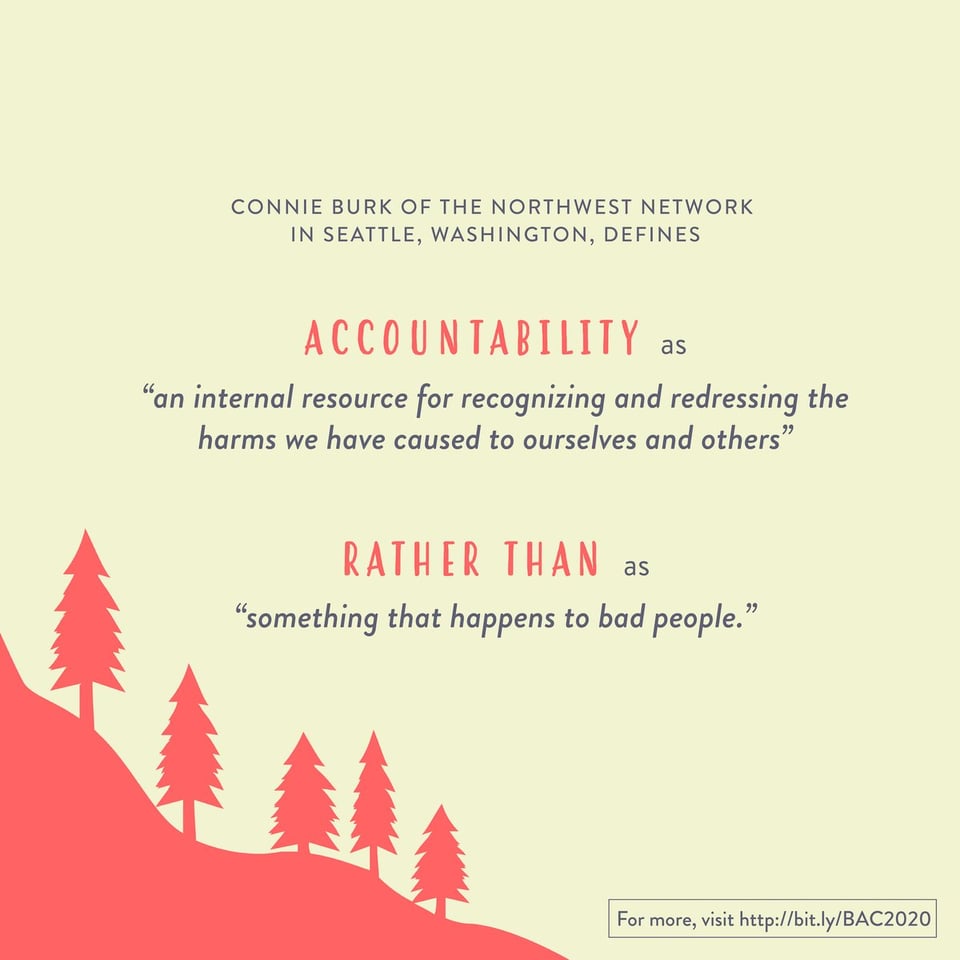Closets: the you you're meant to be
Hello,
In honor of Pride month and Father’s Day, and what would have been my dad’s 72nd birthday, and what will be the 21st anniversary of his passing…I’m re-releasing a story I wrote in 2015 called Closets.
Closets is a lyric essay comic about my dad, the mysteries he left behind, and me trying to make sense of my own identity in relation to his absences. I’ll be sharing a few sections a week over the next four weeks with updated commentary.
Today we are looking at parts 6 + 7 of the story. And I’ve included a list of links and resources that have helped me on my journey to accountability.
Read ”Closets” 🍃
Part 6: The stories we tell ourselves

Part 7: Who are you not to be?

Director’s Commentary 📹 (10 years on)
Actually, ten+ years later, I have a bit more nuance to my conclusions in Part 7. Yes, I want to be able to take up space and stand in the spotlight, BUT I also am more accepting of myself as how I am — that I’m probably more suited to be a producer and not the talent, that I’m more suited to behind-the-scenes ops and less suited to being the visionary/storytelling face of an organization, that I don’t want to be directly perceived most days but that I can still be seen and heard and whole.
Part 6 feels like the most vulnerable bit of the whole story. Maybe because in our (American, westernized, individualistic) culture, we’re supposed to be Self-Confident™ and Believe in Ourselves® 🙌🏼🌈. And it’s embarrassing to admit that on my low days, it’s easy for me to not feel inherently worthy of being, ya know, around…welcomed…wanted.
It’s interesting that my core story involves a negating kind of equation, as if my dad’s fully-realized life and my own cannot co-exist at the same time — obviously kid logic, and probably some homophobic logic as well. It takes a different kind of cultural imagination to know that his queerness and our family’s happiness were not mutually exclusive.
This is a power of art and expressive writing: to illuminate your unconscious stories and to re-story them with care and grace. Writing is not therapy, but therapeutic side effects are possible. (An example is Dr. Stephanie Han’s “Write Your Divorce Story”. As she says in this article about the process, "writing makes meaning, but it also demands a ruthless examination of truth.”)
I want to talk about this one particular slide in the story:

Over Father’s Day weekend, I ended up reading this romance novel called Second Chances in New Port Stephen by TJ Alexander. I found myself bawling over this one Christmas Eve scene where the two main characters Nick and Eli are moving through the goodnight routine with Nick’s 4-year-old Zoe after a tiring day. At first, I thought my tears were because ‘I must secretly want a little family or something,’ but then I realized it was probably more the double whammy of: never have been fathered like that myself, and Nick Wu being some alt fiction version that dad might have been in some other timeline (EEAAO style).
I’ve read so much queer literature and have heard so many more bi and pan and ace stories since 2014 or 2004, that I see “family” more expansively now. I understand that individuals can contain multitudes, and that each of our individual lives can be filled with contradictions. And that one part of us doesn’t necessarily negate other or older parts of ourselves.
This is a way to accept responsibility for our past choices, be held accountable to them, AND still continue to grow and change. The narrator of “Closets” has compassion for herself and her father for their choices, but the me of now is able to go a step farther — to see that taking responsibility for the harms that came out of our absences doesn’t make either of us a bad person. In the past, making a mistake was so entangled with the shame of being a bad person, that I could never accept that I had harmed someone, I could never take actual responsibility for the mistake itself. I would try to explain or justify the why beneath the action, or skip ahead to the self-flagellation — neither acknowledging or addressing the impact on the other person.
A constellation✨ of resources on Accountability

Part of my (ongoing) journey to getting to true accountability owes gratitude to:
Understanding shame (via Brené Brown’s books)
Understanding interdependence vs. co-dependence (via Gay Hendricks and via Jessica Fern)
Understanding boundaries aka distinguishing that your feelings are not my feelings (via Mia Schachter and Prentis Hemphill)
Practicing releasing somatic and emotional experiences that aren’t mine (via MINKA Mystery School)
Practicing Decolonizing Nonviolent Communication (via Meenadchi)
Practicing with-ness and not JIF-ing (judging, interpreting, fixing) when active listening (via Yes!Jams)
Shepherding conflict through interspiritual community (and practicing long-slow teachings over the years from adrienne maree brown, Mariame Kaba, Leah Lakshmi Piepzna-Samarasinha, and Kazu Haga)
Participating in a 6-week community-led accountability learning circle with some folks from Alt-Justices
Stay tuned next week for the final installment of the re-release of “Closets” with an epilogue. Please share with a friend if any of these chapters have resonated with you. If a friend forwarded you this email, consider subscribing to this newsletter for additional writing and comics!
Take care,
Christina
***
Other Offerings 💖
🌱 Living the Questions: I started a series on Patreon to share my discernment around how my anti-capitalist, disability justice, and work-as-vocation lenses might shape the ways I choose to structure my work life.
🎧 Listen to “Foment: yogurt coops”! A podcast sharing possibilities from the solidarity economy. Have a question for us? Email us at koanprops@gmail.com
📚 Buy my zines. A recent reader of It’s Okay That It’s Not Okay said, “A great graphic novel! I couldn’t put it down once I started. Love your style, your line and lettering. What a painful and beautiful piece.”
📺 Watch some Microplays: The cheerleader voice from part 7 encouraging me to step into the spotlight was partially in response to auditioning for the SF Neofuturists. Without even realizing it (until I asked for feedback during my rejection call), I had written 3 microplays wherein I was either offstage or among the audience — none where I spotlighted myself as actor and performer. I continue to love the artform that doesn’t ask you to suspend disbelief and their 30-plays-in-60-minute shows as the performance sport they are. I recommend their shows + workshops if you are in NY, Chicago, or SF. Albert and I made a bunch of online microplays in the style of neofuturism during the first year of pandemic.